Paris-Roubaix remains the next big objective for Démare
Madiot has "no interest" in polemic over Milan-San Remo victory
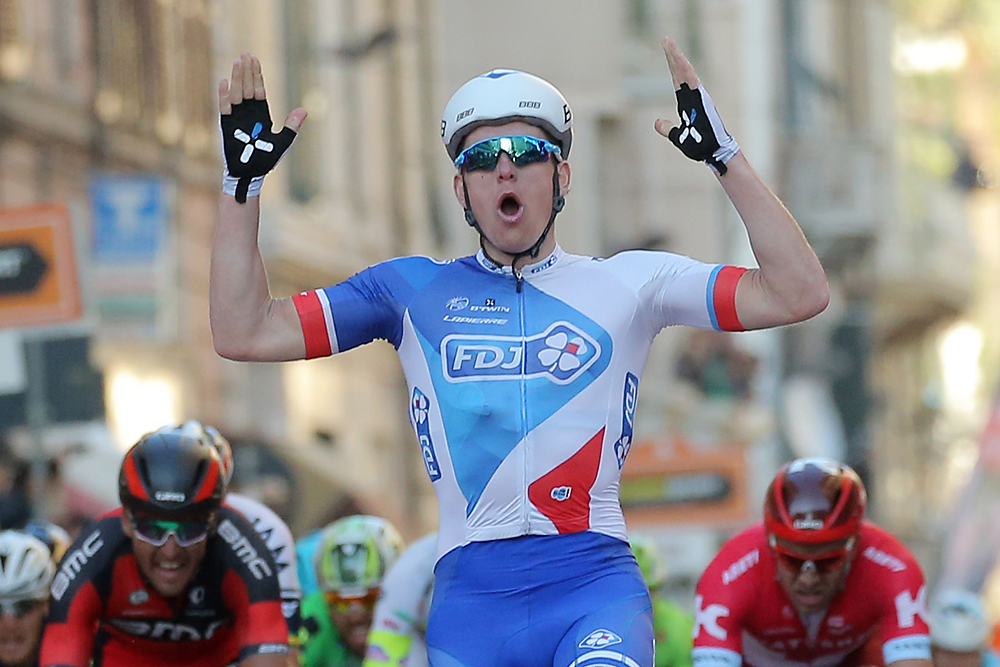
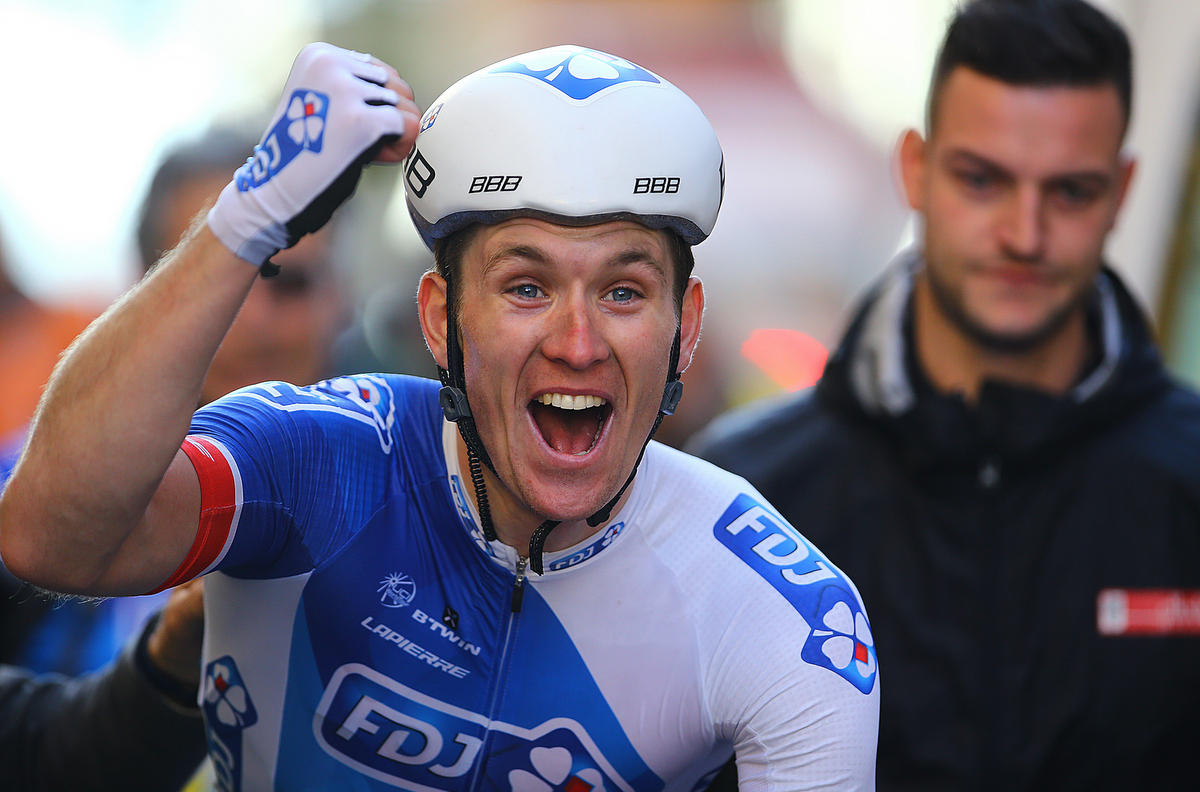
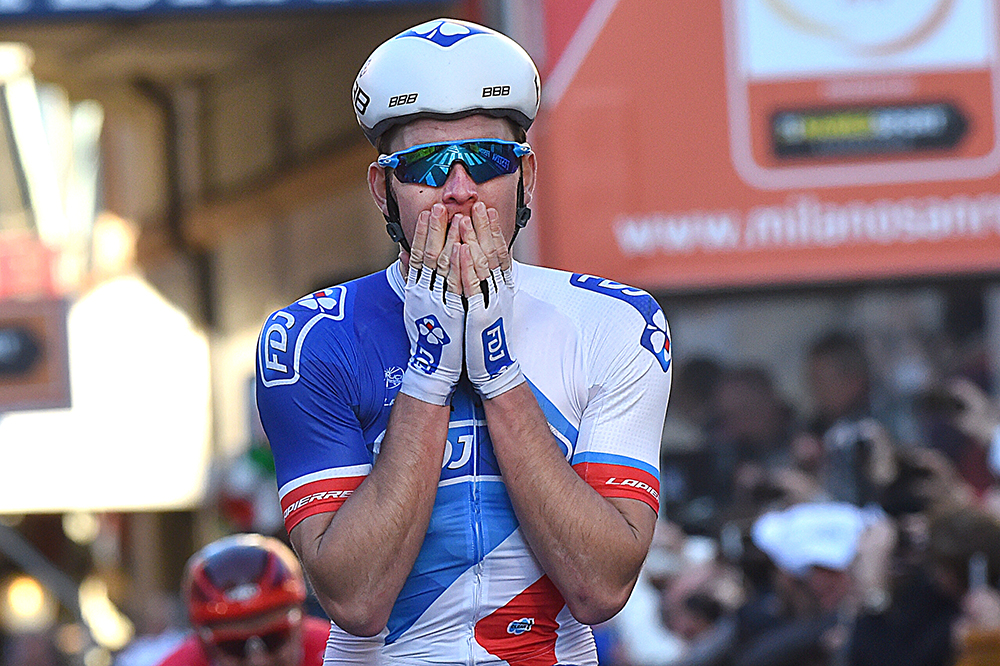
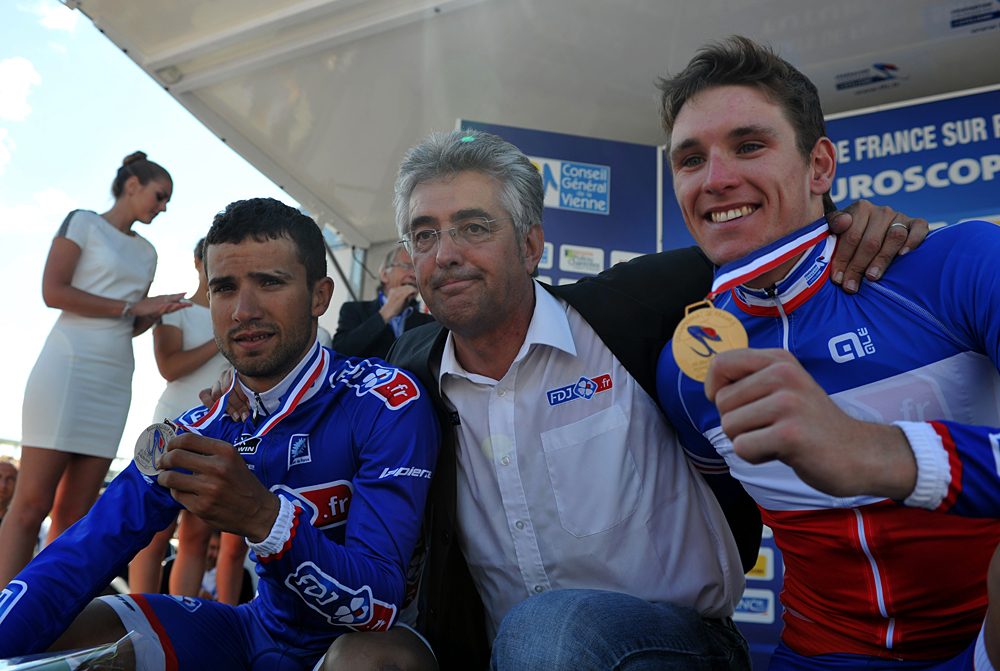
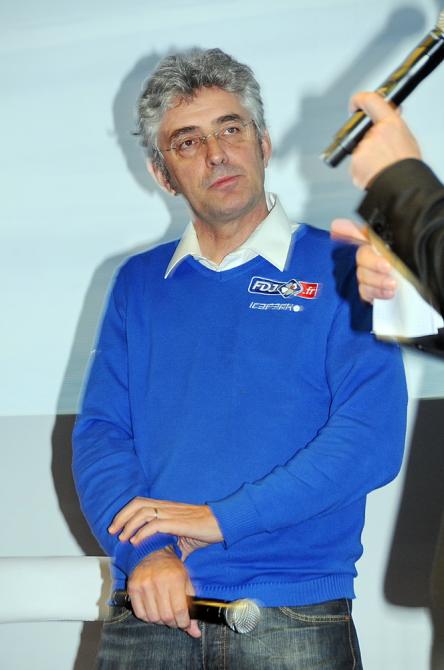
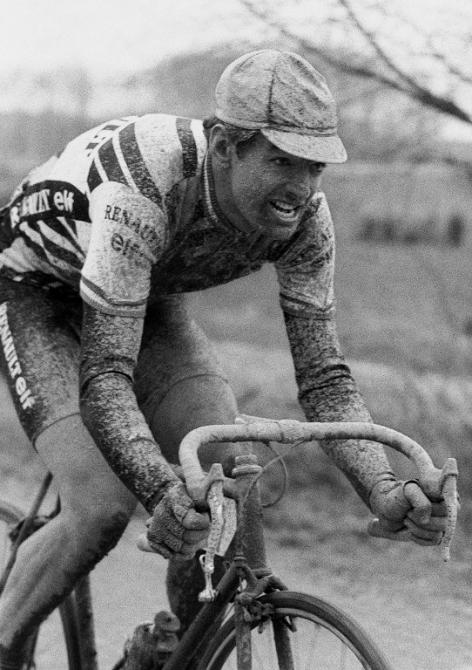
Arnaud Démare (FDJ) returned to action for the first time since winning Milan-San Remo, with a low-key showing at E3 Harelbeke on Friday. However the Frenchman will expect to be to the fore once again at Gent-Wevelgem on Sunday as he continues his build-up to Paris-Roubaix.
No Frenchman has won the Hell of the North since Démare’s directeur sportif, Frédéric Guesdon, sprang an upset by winding up his sprint from distance on the Roubaix velodrome in 1997. FDJ is managed by another former Paris-Roubaix victor: Marc Madiot (winner in 1985 and 1991)and he has been priming Démare for glory on the pavé since he turned professional in 2012.
While Démare’s victory in Milan-San Remo was FDJ’s first in a Monument Classic since its inaugural season in 1997, Madiot is not ready for his rider to sit on his laurels.
“We’ll be a bit more relaxed having won Milan-San Remo, but Paris-Roubaix remains a big objective for this year and for the years to come,” Madiot told Cyclingnews in Harelbeke on Friday. “He doesn’t need any specific race conditions to win: he’s got the profile of a rider who can do well at Paris-Roubaix.”
The truism often offered by Classics winners is that the first such victory is the hardest to achieve, but Madiot took a prosaic view of the notion that the 24-year-old Démare’s triumph on the Via Roma last weekend would mark a watershed of sorts for his career.
“It doesn’t change anything, you still have the same pain in your legs the next day,” Madiot said. “Of course it gives some more confidence, but when you’re racing again the following weekend, the computer goes back to zero and you start from scratch again. That’s how we work.”
Démare was never in the thick of the action at E3 Harelbeke on Friday, eventually rolling home in 102nd place, more than 11 minutes down on winner Michal Kwiatkowski (Team Sky). As L’Équipe put it on Saturday morning, it looked “as though he hadn’t yet digested Milan-San Remo,” but he will expect to be in contention at Gent-Wevelgem on Sunday, where he will renew acquaintances with former FDJ teammate Nacer Bouhanni (Cofidis).
Get The Leadout Newsletter
The latest race content, interviews, features, reviews and expert buying guides, direct to your inbox!
The Beauvais-born Démare placed second to John Degenkolb in the bunch finish in Wevelgem two years ago, though his FDJ manager Marc Madiot noted that alterations to the parcours – not to mention the grim weather forecast for Sunday – mean that a sprint finale is no formality.
“The route for Gent-Wevelgem has changed this year, though,” he said. “We go over both sides of the Kemmelberg, so the race will be different, or, at least, it certainly could be different.”
More money than us
Victory at Milan-San Remo was the high point of a fine start to the 2016 season by FDJ. The squad’s collective progress was highlighted by a strong showing in the opening team time trial at Tirreno-Adriatico, which ultimately set Thibaut Pinot up for his fifth place overall. Madiot, however, insisted that they cannot compete with the biggest budget teams, such as Team Sky, Astana or Etixx-QuickStep, over the course of the entire season.
“They’re stronger than us, they’ve got more money than us. They have double our budget and then on top of that, we have the extra burden of taxes in France so they’re stronger than us,” he said. “We’re at a good level and we’re very prepared and focused to do well in certain specific races – but not every race all year long.”
Démare’s Milan-San Remo triumph was called into question in Gazzetta dello Sport the morning after the race, with both Eros Capecchi and Matteo Tosatto claiming that they had seen him take a tow from a team car on the Cipressa as he chased back on after being caught up in a crash.
FDJ directeur sportif Guesdon and Démare have each offered their responses to the furore by dismissing the accusation, but Madiot – who was not present at Milan-San Remo – refused to be drawn into the polemic.
“No interest,” he said, shutting down any further questions. “No interest,” he repeated. “It’s over.”

Barry Ryan was Head of Features at Cyclingnews. He has covered professional cycling since 2010, reporting from the Tour de France, Giro d’Italia and events from Argentina to Japan. His writing has appeared in The Independent, Procycling and Cycling Plus. He is the author of The Ascent: Sean Kelly, Stephen Roche and the Rise of Irish Cycling’s Golden Generation, published by Gill Books.